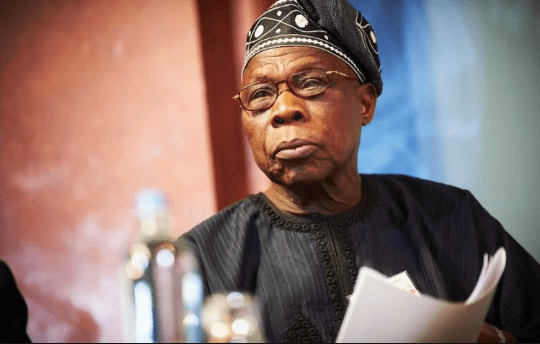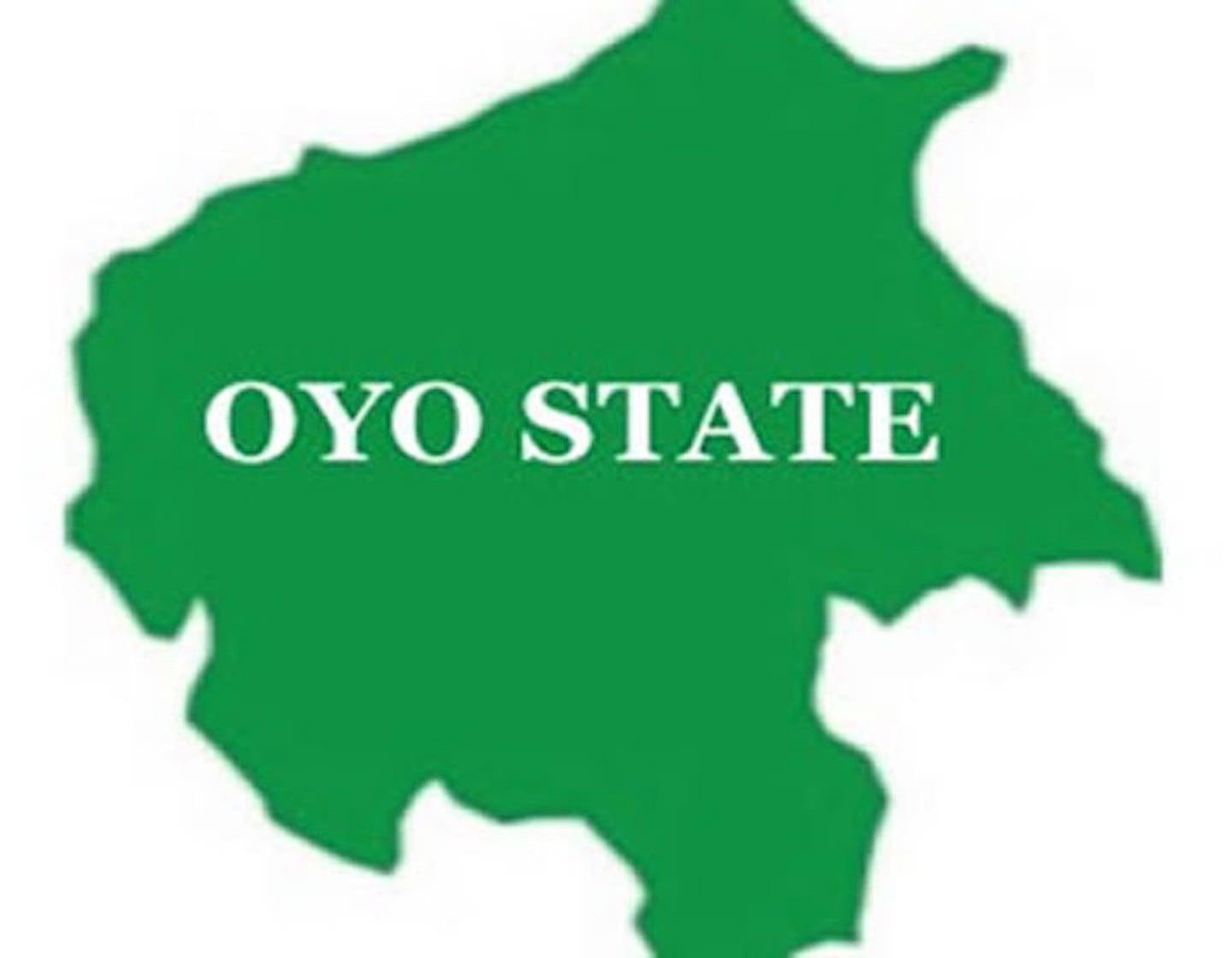News
Nigeria Has Disappointed Africa, Black Race – Obasanjo

…attributes Nigeria’s problems to regionalism, disunity
The former President of Nigeria, Chief Olusegun Obasanjo, on Tuesday, said Nigeria has disappointed the black race and Africa in particular due to a lack of good leadership.
He said, the whole world looked at Nigeria as the hope of the black race due to its potential, but bad leadership, disunity and regionalism have made the country lose its potential.
The former President, who said this
when he played host to the 20-member delegation of League of Northern Democrats led by former Governor of Kano State, Alhaji Ibrahim Shekarau, at his Penthouse, located within the premises of the Olusegun Obasanjo Presidential Library, Abeokuta, blamed regionalism, which was practised before the nation’s independence in 1960, as the foundation of the country’s prolonged lack of cohesion.
Obasanjo said, despite the uninspiring situation of things in the country, he remains an incurable optimist that things will turn around for good in the country, “as long as we can look back as a country and correct the mistake of the past”.
He explained that “the truth is that at independence, Nigeria emerged with three leaders and so, it is a situation of three countries in one ever since”
READ ALSO: Court Stops Sale Of Late Judge’s Property As Daughter Sues Church
The former President said that the question of where you come from in appointing leaders should not be a problem, but what should be of paramount interest is the merit, capacity and ability to deliver on how to move the nation forward saying that “it is high time we begin to work for the national interest”.
Obasanjo said, “You have identified your group as League of Northern Democrats, but how I wish you call your group National League of Democrats because where you come from should not be a problem. Where I was born should not be the enemy of my country. I will be increasing by being a Nigerian than being a member of the Republic of Oodua”.
“I am undoubtedly proud to be a Yoruba, but my being a Nigerian should not be the enemy of my being a Yoruba. We must get the best man for the job, it doesn’t matter where he comes from. We must get our acts together”.
“The African continent, the black race and the entire world are looking up unto us. When we got our independence, what they were calling us was giant in the sun, but is that the situation today?”
READ ALSO: How Nigeria Became Burial Ground Of Policies —Obasanjo Laments
“We have disappointed ourselves, we have disappointed the black race, Africa and the world at large. So, our concern is right, we have rubbished the value of integrity, no truth, no love, but it is not too late to retrace our steps. We must put the past behind us and work for the greatness of Nigeria”.
Obasanjo said, he shared the concerns of the group for the poor state of things in the country, but that the situation is not beyond salvaging as long everyone is ready to come together and work as a united nation.
Obasanjo said that he would forever remain a Pan-Africanist, a patriotic and Nationalistic Nigerian and a proud black man from the black race.
While advising the group to change its name to the National League of Democrats because the ideals it espoused cut across the nation, noted that he would not mind being their patron if he could not be an active member due to old age.
Speaking earlier, the leader of the group, Shekarau said the creation of the non-partisan group about three months ago was designed to rally good governance and oneness of the country.
READ ALSO: Out-of-school Children Syndrome, Recruitment For Future Boko-Haram – Obasanjo
The former governor said that the group is concerned about the issues of unity, youthful exuberance and employment, issues of education, good governance, credible people in government, insecurity and general underdevelopment of the country.
Shekarau said that the group which is made up of people of varying professions across the northern parts of the country decided to come together to see how it can influence good governance, selection of credible leaders among other efforts to address the problems confronting the country.
He lamented that it was unfortunate that registered 93m voters in the country cannot elect the ruling class members who he said are not more than 11,000.
Shekarau said “From all the 36 governors and their deputies, the President and his vice, the 469 lawmakers in both the House of Representatives and Senate, the councillors and the local government Chairmen, all of them are just a little over 11,000, yet the 93 million registered voters in the country cannot look around and elect credible leaders. So, all of these we hope to address with our advocacy as a group.”
The former governor also said that just like the former President has advised, the name of the group after due consultation will be made National to give everyone a sense of belonging.
VANGUARD
News
Oyo Traditional Ruler Suspended Over Alleged Illegal Mining

The Oyo State Government has suspended the Sobaloju of Ofiki, Chief Jacob Sobaloju, following allegations linking him to illegal mining activities and breaches of Executive Order 001/2023, which governs mining operations within the state.
The state government said the action was taken to protect the public interest and preserve government-gazetted assets.
In a suspension letter issued by the Ministry of Local Government and Chieftaincy Matters and signed by the Director of Chieftaincy Matters, Mr Olajire A.M., the traditional ruler was accused of contravening the executive order and forest reserve regulations by allegedly issuing consent letters to mining firms without lawful authorisation.
READ ALSO:Fire Ravages Residential Building In Oyo
The letter further alleged that Chief Sobaloju permitted mining activities within government-reserved forest areas and facilitated unauthorised mining operations, actions said to be in violation of extant laws and regulations.
According to the ministry, the monarch was suspended from the palace of the Onitọ of Ito with effect from Monday, January 5, 2026, pending the outcome of investigations.
The suspension was described as a precautionary step to ensure an unhindered and credible investigation process.
READ ALSO:Police Arrest Islamic Cleric With Human Flesh In Oyo
The correspondence, titled “Re: Complaint against Chief Sobaloju of Ofiki for violation of State Executive Order, Forest Reserve Regulations and encouraging trespassing of government gazetted assets,” stated that the allegations bordered on violations of Executive Order 001/2023 and unlawful encroachment on state-owned assets.
Chief Sobaloju was also directed to immediately cease all mining-related activities, including the issuance of consent letters, avoid interference with the investigation, and make himself available to investigators whenever required.
The Oyo State Government reaffirmed its zero-tolerance stance on illegal mining and related infractions, warning that any individual found culpable would be sanctioned in line with the law.
News
Why I Resigned As CIGM Boss – Arogundade Breaks Silence

Jubril Arogundade, former senior executive of CIG Motors, has clarified the circumstances surrounding his departure from the company.
He explained that his exit was voluntary and motivated by concerns over corporate governance, not misconduct.
Recall that Arogundade resigned from his position on December 2, 2025, citing persistent issues with internal controls, financial management, and regulatory compliance.
READ ALSO:Resign As Minister, Face Your Obsession With Rivers – APC National Secretary Slams Wike
“I resigned from my position at CIG Motors after careful reflection and in line with due process,” he said.
“It is therefore deeply concerning that my voluntary exit has been publicly mischaracterized. My decision was guided by principle and professional responsibility.”
He explained that over a sustained period, he had raised concerns internally about corporate governance gaps, growing debt, and unresolved regulatory obligations but did not see meaningful corrective action.
READ ALSO:Nine Soldiers Feared Dead In Borno IED Explosion
“As a Nigerian professional, I take governance, compliance, and institutional responsibility very seriously,” Arogundade said.
“When internal efforts to address these matters did not yield results, I chose to resign rather than compromise on standards that I believe are fundamental to sustainable business.”
Addressing reports linking him to financial impropriety, Arogundade said, “I have nothing to hide and welcome any lawful, independent, and objective review of my conduct during my tenure. Contrary to public insinuations, no regulatory or law enforcement agency has contacted me regarding these claims, and I remain fully available to cooperate should any legitimate inquiry arise.”
News
Why Nigeria’s New Tax Law May Not Succeed – CPPE

The Centre for the Promotion of Private Enterprise has said the new tax laws, which began January 1, 2026, may not succeed because they are unfolding under unusually delicate circumstances.
CPPE Executive Chief Officer, Muda Yusuf disclosed this in a statement on Sunday.
This comes as DAILY POST reports that new tax laws kicked off despite calls for their suspension.
READ ALSO:OPINION: Saraki’s Persona In Bolaji’s Book
Commenting, CPPE stressed that the ultimate success or failure of Nigeria’s tax reform will depend far less on its legislative provisions and far more on how it is implemented.
The economic think tank said with 2026 shaping up as a pre-election year, political and social caution is imperative and could impact the implementation of the tax laws.
“Without careful sequencing, political sensitivity, and economic realism, even well-intentioned reforms can trigger resistance, disrupt livelihoods, and further erode public trust,” CPPE said.

 News2 days ago
News2 days agoWhat I Saw After A Lady Undressed Herself — Pastor Adeboye

 Headline2 days ago
Headline2 days agoPROPHECY: Primate Ayodele Reveals Trump’s Plot Against Tinubu

 Metro2 days ago
Metro2 days agoArmed Robbers Shot PoS Operator To Death In Edo

 Politics2 days ago
Politics2 days agoWhy Kano Governor Postponed Formal Defection To APC

 Metro2 days ago
Metro2 days agoGunmen Demand N200m Ransom For Kidnapped Brothers In Edo

 Metro2 days ago
Metro2 days agoJoint Task Force Kills 23 Bandits Fleeing Kano After Attacks

 Entertainment2 days ago
Entertainment2 days agoAnthony Joshua Returns To UK In Private Jet

 News2 days ago
News2 days agoReps Release Four Tax Acts For Public Records

 Metro19 hours ago
Metro19 hours agoAAU Disowns Students Over Protest

 Entertainment2 days ago
Entertainment2 days agoPHOTOS: Anthony Joshua Makes First Social Media Post After Surviving Deadly Car Crash






























